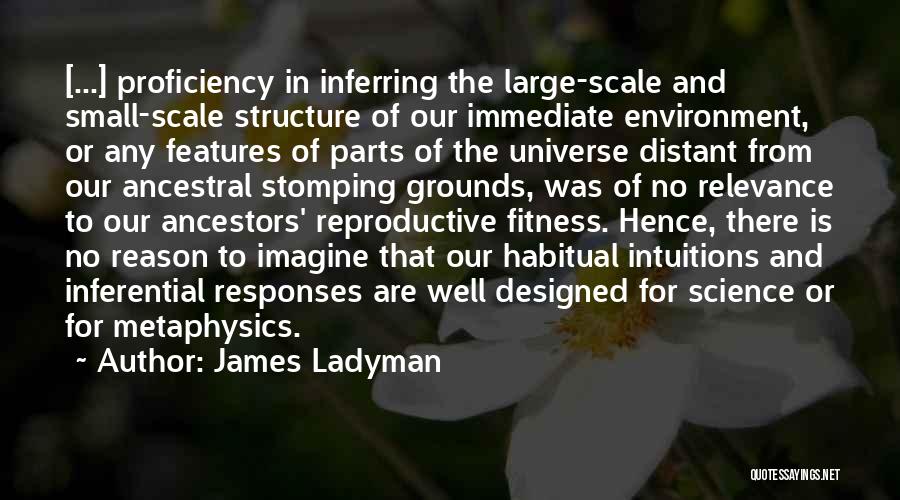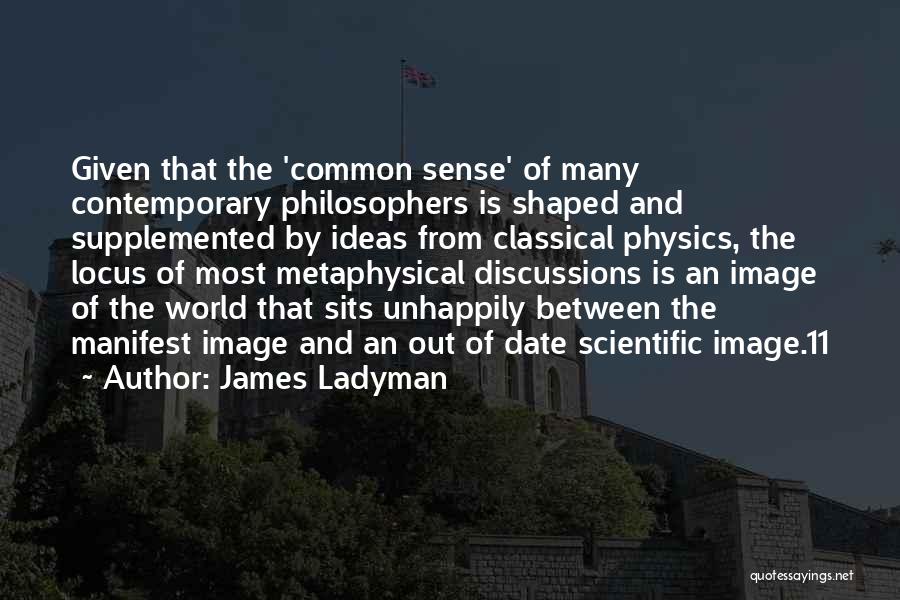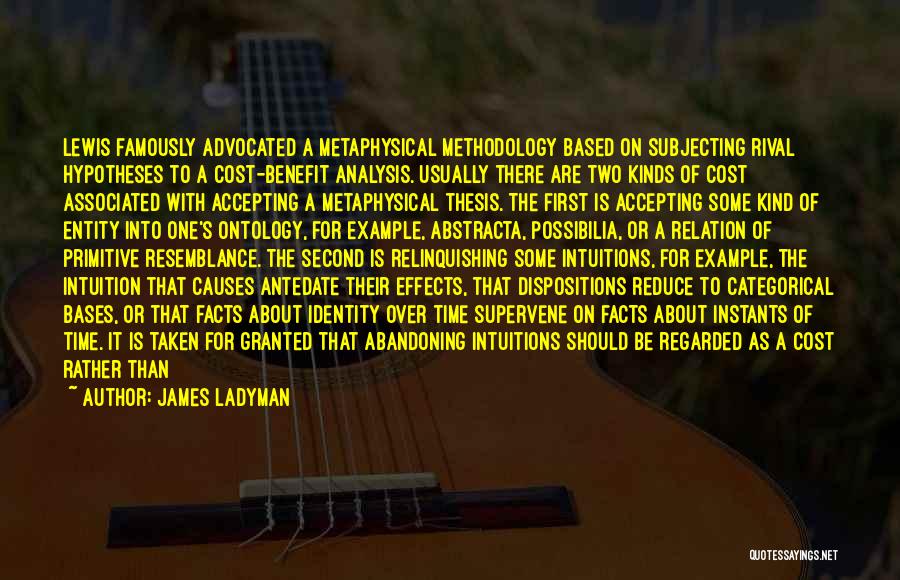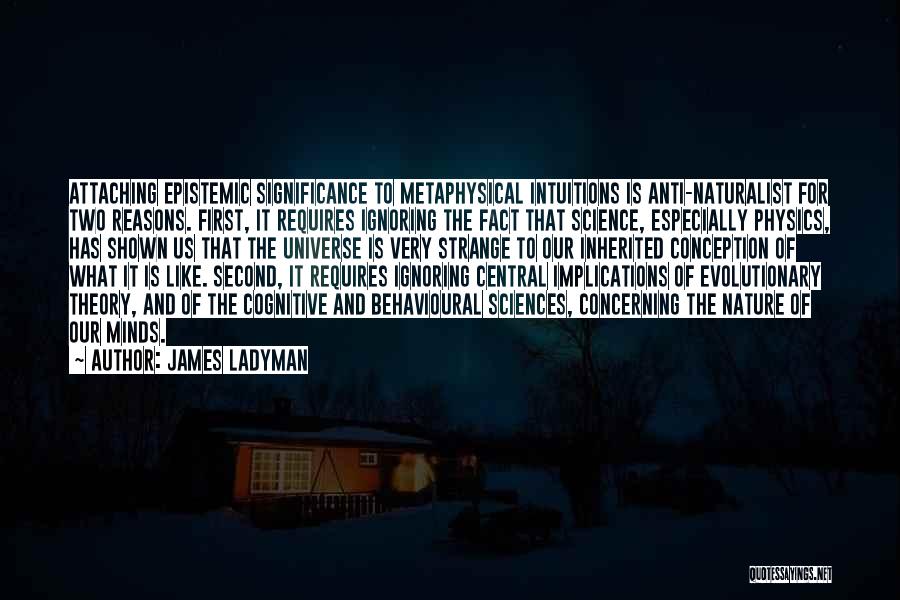James Ladyman Quotes & Sayings
Enjoy the top 4 famous quotes, sayings and quotations by James Ladyman.
Famous Quotes By James Ladyman

[...] proficiency in inferring the large-scale and small-scale structure of our immediate environment, or any features of parts of the universe distant from our ancestral stomping grounds, was of no relevance to our ancestors' reproductive fitness. Hence, there is no reason to imagine that our habitual intuitions and inferential responses are well designed for science or for metaphysics. — James Ladyman

Given that the 'common sense' of many contemporary philosophers is shaped and supplemented by ideas from classical physics, the locus of most metaphysical discussions is an image of the world that sits unhappily between the manifest image and an out of date scientific image.11 — James Ladyman

Lewis famously advocated a metaphysical methodology based on subjecting rival hypotheses to a cost-benefit analysis. Usually there are two kinds of cost associated with accepting a metaphysical thesis. The first is accepting some kind of entity into one's ontology, for example, abstracta, possibilia, or a relation of primitive resemblance. The second is relinquishing some intuitions, for example, the intuition that causes antedate their effects, that dispositions reduce to categorical bases, or that facts about identity over time supervene on facts about instants of time. It is taken for granted that abandoning intuitions should be regarded as a cost rather than a benefit. — James Ladyman

Attaching epistemic significance to metaphysical intuitions is anti-naturalist for two reasons. First, it requires ignoring the fact that science, especially physics, has shown us that the universe is very strange to our inherited conception of what it is like. Second, it requires ignoring central implications of evolutionary theory, and of the cognitive and behavioural sciences, concerning the nature of our minds. — James Ladyman





